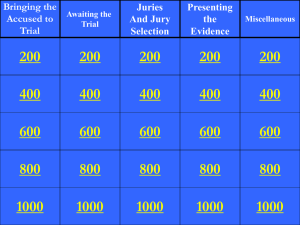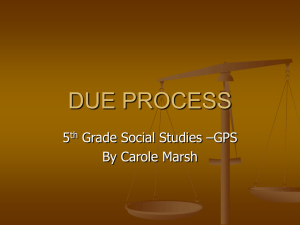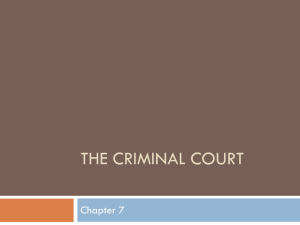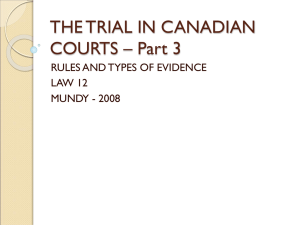Legal Terminology for To Kill a Mockingbird
advertisement
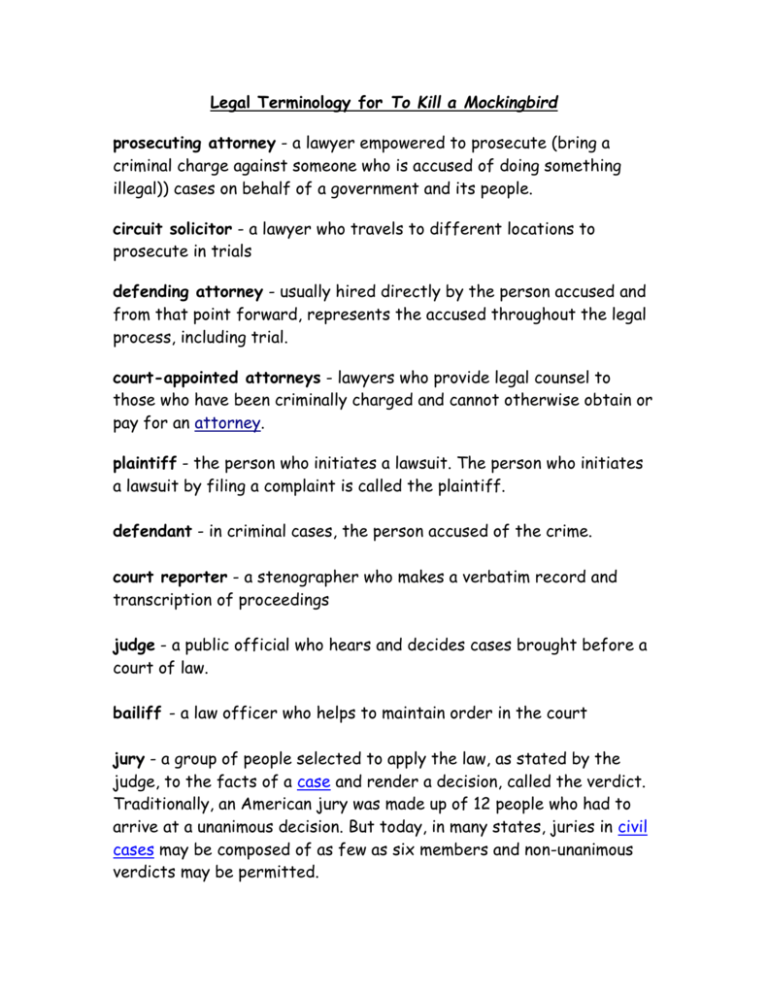
Legal Terminology for To Kill a Mockingbird prosecuting attorney - a lawyer empowered to prosecute (bring a criminal charge against someone who is accused of doing something illegal)) cases on behalf of a government and its people. circuit solicitor - a lawyer who travels to different locations to prosecute in trials defending attorney - usually hired directly by the person accused and from that point forward, represents the accused throughout the legal process, including trial. court-appointed attorneys - lawyers who provide legal counsel to those who have been criminally charged and cannot otherwise obtain or pay for an attorney. plaintiff - the person who initiates a lawsuit. The person who initiates a lawsuit by filing a complaint is called the plaintiff. defendant - in criminal cases, the person accused of the crime. court reporter - a stenographer who makes a verbatim record and transcription of proceedings judge - a public official who hears and decides cases brought before a court of law. bailiff - a law officer who helps to maintain order in the court jury - a group of people selected to apply the law, as stated by the judge, to the facts of a case and render a decision, called the verdict. Traditionally, an American jury was made up of 12 people who had to arrive at a unanimous decision. But today, in many states, juries in civil cases may be composed of as few as six members and non-unanimous verdicts may be permitted. Other legal terms used in the book: Chapter 16: Subpoena - a written legal order directing a person to appear in court to give testimony Chapter 17 corroborating evidence - in legal terms; corroborating evidence is evidence which helps to strengthen a position. contempt charges - contempt, in this case, is open disrespect of a court or judge. A person who acts in such a manner may face a contempt charge from a judge. irrelevant'n'immaterial - "irrelevant and immaterial" Irrelevant means not relative; not related (to something). Immaterial means unimportant. The judge is saying that whether or not Mr. Ewell can read and write is not related and unimportant to the case. title dispute - a legal fight over the ownership of a particular piece of property Chapter 20 indicted - formally accused; charged Chapter 21 acquit - clear of a charge; find not guilty charged the jury - when Judge Taylor charges the jury, he gives them instructions in law before they go off to deliberate or decide the case
